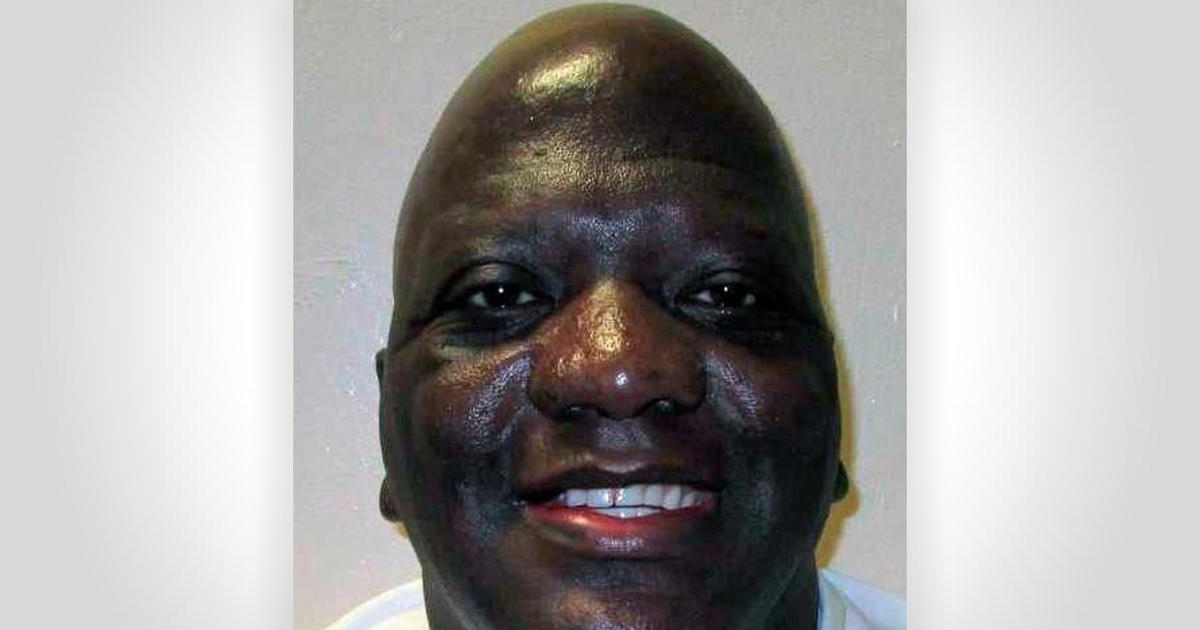Atmore, Alabama – An Alabama prisoner won on Thursday the postponement of a scheduled lethal injection after the United States Supreme Court said the state should allow its personal pastor to enter the death chamber.
The lethal injection of Willie B. Smith III was canceled by Alabama after the judges upheld an injunction issued by the 11th U.S. Circuit Court of Appeals that he could not be executed without his pastor in the chamber. Department of Corrections spokeswoman Samantha Rose said the execution would not continue with the decision. Alabama said that non-arrested employees should not be in the room for security reasons.
“Willie Smith has been sentenced to death, and his last wish is to have his pastor with him when he dies,” Judge Elena Kagan wrote in an opinion in agreement with three other judges.
Alabama Department of Corrections via AP
“Alabama did not carry the burden of showing that the exclusion of all members of the clergy from the execution chamber is necessary to ensure the safety of the prison. Therefore, the state cannot now execute Smith without the presence of his pastor, to facilitate the which Smith calls a ‘transition between the worlds of the living and the dead’, “wrote Kagan. Judge Amy Coney Barrett joined three liberal judges to uphold the decision.
The case was the latest in a series of legal fights over personal spiritual counselors during the executions. The court in 2019 suspended the execution of a Texas prisoner who alleged that his religious freedom would be violated if his Buddhist spiritual advisor could not be in the death chamber with him.
Judge Brett Kavanaugh suggested in a dissent that states that wish to avoid litigation on the issue “should find a way to allow spiritual counselors to enter the execution room, as other states and the federal government have done.”
Alabama Attorney General Steve Marshall did not immediately comment on the decision to cancel the lethal injection.
After the execution was canceled, Smith was taken from a cell in the execution chamber back to his cell on death row, a prison spokeswoman said.
Smith, 51, was scheduled to receive a lethal injection at a prison in southern Alabama for the murder of Sharma Ruth Johnson in 1991, 22, in Birmingham.
Smith sought to allow his spiritual advisor, Pastor Robert Wiley, into the execution chamber, something the state does not allow.
“Mr. Smith claimed that he believes the transition point between life and death is important and that having his spiritual advisor physically present at that time is an integral part of his faith,” wrote Smith’s lawyers in court documents.
In the past, Alabama used to place a Christian chaplain in prison, who was a state employee, in the execution chamber to pray with an inmate if requested. The state stopped this practice after a Muslim prisoner asked for the presence of an imam. The prison system, which did not have a Muslim cleric on the team, said that non-arrested employees would not be allowed into the chamber.
Prosecutors said Smith kidnapped Johnson at gunpoint at an ATM, stole $ 80 from her and then took her to a cemetery where he shot her in the back of the head. The victim was the sister of a police detective.
“More than 29 years ago, Smith shot a woman whose only crime was to stop using the ATM,” state lawyers wrote in court documents that sought to allow the lethal injection to continue.
The judges vacated another stay issued by the 11th Circuit related to Smith’s intellectual ability. His lawyers argued that the state did not give the man, who has an IQ below 75, the necessary assistance with forms that affect the timing of his execution. Alabama’s attorney general’s office in lawsuits contested that Smith is disabled and called it a last-minute delay maneuver.
If the execution had taken place, it would have been the first by a state in 2021 and one of the few at the state level since the pandemic COVID-19 began last year. According to the Death Penalty Information Center, no state has had an execution since last July 8.
After a 17-year hiatus in federal executions, President Trump resumed them in July. In December, the United States government had executed more people within the year than all states that still carry out executions. The US killed 13 people before President Biden took office, including three this year.

